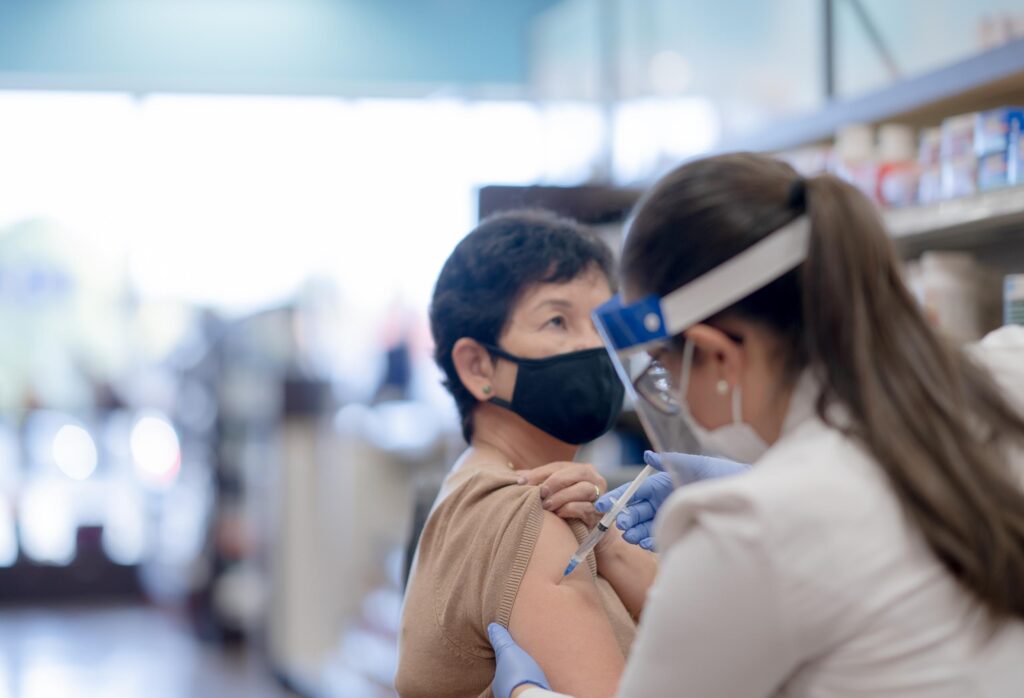Allowing pharmacists, pharmacy interns, and pharmacy technicians to administer vaccines will increase immunization rates, reduce overall health care costs, and save lives.
Thanks to the COVID-19 federal emergency authorization, pharmacies across the country are providing direct access to health care professionals and accelerating COVID-19 vaccination and testing, all while ensuring continued access to essential medications and preventive services, such as routinely recommended vaccines.
Ensuring pharmacists can administer vaccines has been especially important during the pandemic because an efficient, accessible infrastructure was needed to deliver vaccines to millions of people.
However, pharmacists’ universal authority will expire whenever the COVID-19 public health emergency designation is lifted, which will limit pharmacists’ ability to provide accessible and convenient care beyond the COVID-19 pandemic.
This is particularly concerning as not only do decades of research show that vaccines save lives, but also a 2022 study authored by Global Healthy Living Foundation and funded by ADPC reveals that seniors and people living in poverty who may otherwise lack access to healthcare services and facilities may benefit the most.
Pharmacies are increasingly the go-to source for vaccinations. Since the pandemic, there has been a marked increase nationwide in people getting vaccines against life-threatening diseases at pharmacies compared to non-pharmacy medical settings—regardless of location, race, gender, or income, according to a 2023 report.
Every American should have the ability to get vaccinated against life-threatening diseases regardless of geography, income, or health insurance status. We must ensure pharmacists’ rights to provide and administer vaccines. Pharmacists, like other health care providers under their own authority, should be able to administer vaccines.

Benefits include:
- Access for patients with no or limited access to primary or routine medical care
- Access for communities of need, especially low-income communities, underserved communities, or communities of color, where vaccination is less common or less accessible
- Access for people who cannot get vaccinations during their physicians’ or clinics’ business hours
- Convenience for people who live far from or lack transportation to their physicians’ offices
- Encouragement and access for those who wouldn’t otherwise get vaccinated
- Protection for acutely and chronically ill patients
- Fewer outbreaks across society as a whole
- Improved management of patient care activities because physicians’ time is freed up to focus on patients’ complex and urgent medical issues
- Documentation of vaccines into Immunization Information Systems (IIS) for ease of patient access
